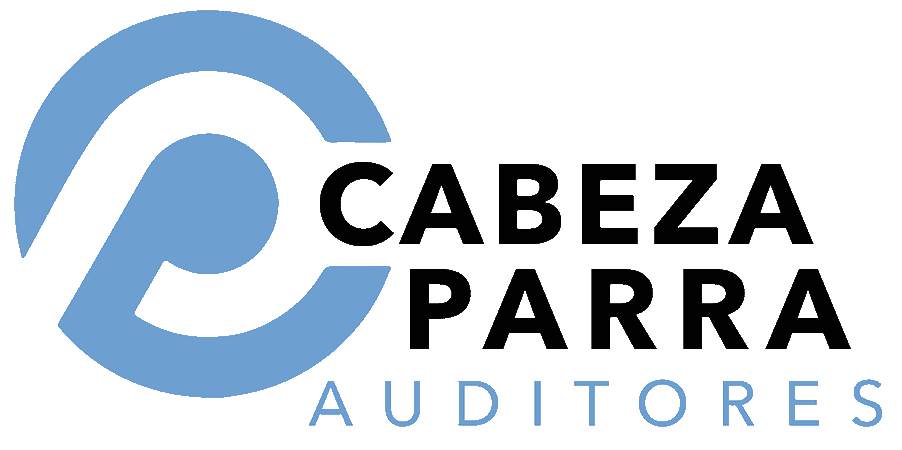Our services


Account Audits
The audit carried out by experienced professionals is a great opportunity to identify opportunities, discover brakes and provide solutions to control problems that are detected. All our audit teams are trained to provide suggestions, methods and solutions that benefit our clients and to give their mission A MEANING MORE VALUABLE THAN THE AUDIT ONLY. For this reason, our collaboration must provide them with additional character:
An IDENTIFICATION OF PROBLEMS AND OPPORTUNITIES in all fields of action of the Company
An approach of SOLUTIONS TO PROBLEMS and identification of ways to take advantage of opportunities
We carry out the following types of audits:
individual
Consolidated.
interim financial statements
Our company is a member of the Register of Auditing Economists (REA).
Special Audit Reports Required by Commercial Regulations
- Capital increase by compensation of credits (art. 301.3 LSC)
- Capital reduction to offset losses (art. 323 LSC)
- Capital increase charged to reserves (art. 303.2 LSC)
- Balance sheet audits in merger, spin-off processes, etc…
- Reports on merger projects (art. 467 LSC and art.22 of Regulation (EC) number 2157/2001)
- On periodic public information of the issuing entities of securities admitted to trading on the stock exchange.
- Special report required by regulation 4 of circular 9/1989 of the National Securities Market Commission.
- Preparation of the Complementary Report to the Audit of the Annual Accounts of:
– Credit Institutions.
– Insurance Entities.
– Companies and Securities Agency.
– Investment Services Companies.
– Cooperatives with credit section.


Audit of Non-Profit Entities
- Foundations.
- Associations.
- Federations.
- Professional colleges.
- Others.
Audit Report For Subsidies And Advice On Justifying Them
Some Autonomous Communities and Town Halls grant subsidies or loans for certain activities of interest to their area of influence and that need to be reviewed and/or audited by an account auditor registered with the ROAC. These actions are financed by the funds of these entities and others use the resources granted by other administrations, the most common case is that of the FEDER funds or the EUROPEAN SOCIAL FUND, although there are other official organizations that also provide these subsidies to companies for the development of certain activities.
There are actions that promote competitiveness through research and/or training, or protect and promote certain cultural sectors such as film production or the fashion industry. All of these grants require an account audit report justifying the expenses incurred for the grant, which must be certified by an account auditor registered with the ROAC.
CABEZA Y PARRA Auditores is specialized in the preparation of audit reports to justify grants as well as in the guardianship of the subsidized in the process of justifying them.


Bankruptcy
Legal procedure that originates when a natural or legal person becomes insolvent in which they cannot meet all the payments they owe.
We are specialized in helping clients overcome complex economic situations, such as filing bankruptcy proceedings. For this, our service to SMEs is as follows:
We diagnose insolvency and its possible repercussions.
Preparation of the entire contest (Memory, inventory, list of creditors, advance agreements, etc.).
Technical assistance from the beginning to the end of the contest.
Direct relationship with the bankruptcy administration to review agreements, renegotiations, liquidation plans, etc.
Business Valuation Services Or Due Diligence
What is a “Due Diligence”?
After a period of negotiation and approximation between the sellers and the investors or buyers and once the investor shows a real interest, normally reflected by means of a “Letter of Intent” in which the intention to acquire all or part of the part of a society under certain conditions, then opens a process called“Due Diligence”, “Due Diligence” O“Company purchase audit” by virtue of which the buyer carries out, with the explicit consent and assistance of the seller, a detailed investigation of different areas of the business that he wishes to acquire in order to know more deeply what he wishes to acquire.
For most acquirers this is the first opportunity to learn about the business in detail.

Why should you carry out Due Diligence?
The main purpose of Due Diligence is to reduce the risk of the transaction by providing the buyer with an independent evaluation and detailed analysis of the business, reviewing the existence of possible hidden liabilities or contingencies in all areas of study or review.
It is recommended to carry out a Due Diligence in any type of transaction between companies, although the size of the transaction will determine its scope and duration.
Other reasons could be:
- Identify and quantify synergies that can be exploited.
- Identify any hidden liabilities, accidental matters or possible tax contingencies.
- Determine possible environmental or labor contingencies.
After carrying out the “Due Diligence” and in the event that certain hidden liabilities are detected, both parties should sit down to renegotiate certain aspects related to the transaction.
Who is in charge of carrying out the Due Diligence?
The “Due Diligence” will be entrusted, as a general rule, to teams formed by firms of audit and lawyers to carry out the analysis of the accounting part and the legal or juridical part, respectively.
What is a Due Diligence report?
After collecting the information and its timely analysis, said professionals will record their findings in a report that will describe the object, methodology and scope of the work carried out and an analysis will be carried out of those fiscal, labor and legal aspects of the activity of the company that are necessary.
All of this, as we have already mentioned, in order to detect any aspect or contingency that could be relevant when evaluating the veracity and degree of reliability of the guarantees and representations granted and, especially, to determine possible corrections in the price of fixed purchase-sale or the execution of the clauses of resolution of the agreed business.
The content of the report will depend on the agreed scope of work, but will typically include:
- An objective summary.
- Commercial review.
- Review of industrial and technological aspects.
- Review of the assets and liabilities of the company.
- Review of future forecasts (commercial, generation of resources and investments).
- The management and the staff.
- Accounting review.
- Tax review.
- Legal review.
- Other issues.

Other Jobs For Which We Are Qualified
- Examination of financial statements that are prepared on a basis other than generally accepted accounting principles and standards.
- Compliance reports.
- Limited review.
- Agreed procedures.
- Related services required by Public Organizations or other Entities (ECOEMBES, ECOLUM, …).
- Analysis of unaudited
- annual accounts.
- Examinations of accounts or specific items of the annual accounts.
- Special report on budgeted financial statements.
- Application of specific procedures to budgeted financial statements.
- Subsidy supporting account review reports.
